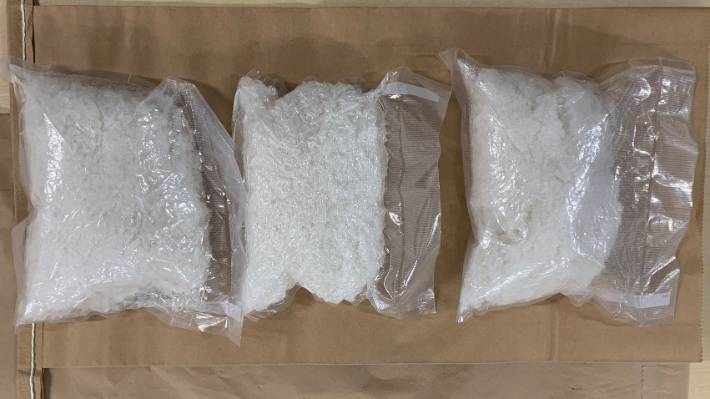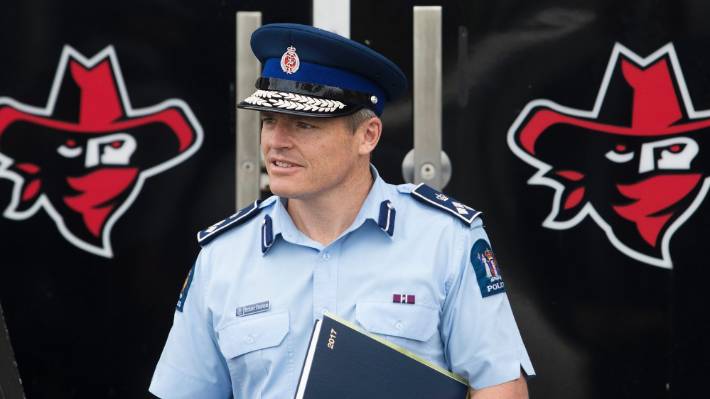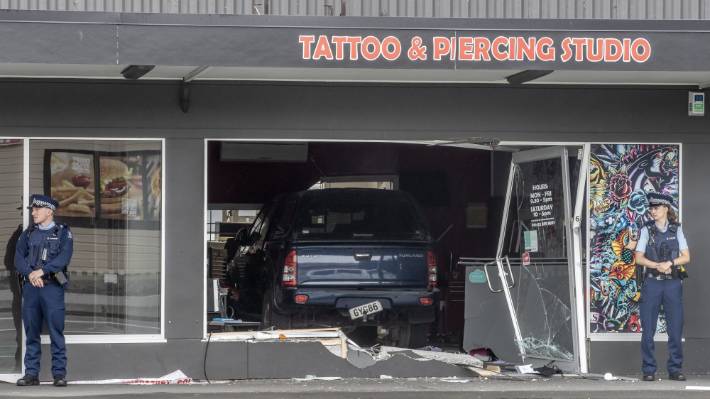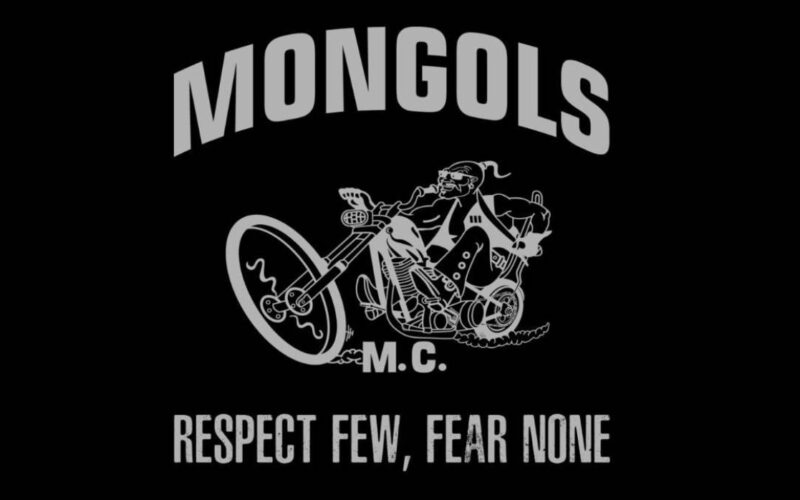Bikie clubs with international links will be the focus of a new specialist police squad dedicated to tackling organised crime across the South Island.
The expansion of the National Organised Crime Group (NOCG) comes amid a major shift in the country’s “criminal underworld”, which includes the arrival of motorcycle clubs with offshore links like the Mongols and Comanchero.
Police say the South Island, which is home to a rising number of club members, is increasingly becoming a target for organised crime.
Earlier this year, the Mongols set up a Canterbury chapter, creating tension among rivals who firebombed and rammed businesses they believed were linked to members of the new group.
On Monday, police seized 3 kilograms of methamphetamine, with an estimated street value of more than $2 million, and about $35,000 in cash, from a property in Bryndwr, Christchurch.
Tamal Edward McMeekan, 39, and a 31-year-old man, who has name suppression, have been charged with possession of methamphetamine for supply.
It is understood both men have links to the Tribesmen, one of the local motorcycle clubs unhappy about the arrival of the Mongols.
On Tuesday, Assistant Commissioner Richard Chambers confirmed police were recruiting seven staff, including five detectives, for a new branch of the National Organised Crime Group — the first in the South Island — which would be based out of Christchurch and report to Police National Headquarters.

There are similar units in Auckland, Wellington and Tauranga. Their sole focus is to target organised crime.
It is hoped the Christchurch branch will be up and running in the next two months.
Chambers said the new group, enabled by the Government’s investment in the recruitment of hundreds of new staff, would support existing organised crime teams in each of the three South Island police districts — Canterbury, Tasman and Southern.
It would target clubs and, in particular, “transnational organised crime”.
“Financial facilitators” — accountants, real estate agents and lawyers — who helped launder money would also be a focus.
Christchurch was chosen as the location for the new branch because its international airport and port made it the most likely gateway to the South Island for groups trafficking drugs.

There has been a shift in the country’s motorcycle clubs landscape in recent years, which is, in part, due to the arrival of hundreds of hardened criminals, known as 501s, deported since 2014 changes to Australian immigration law.
New groups, most notably the Comanchero and Mongols, have established and, according to police data, club membership has increased 50 per cent since 2016.
At the end of August, the “national gang register” carried the names of 71 of the 501s.
Police previously said many of the deported club members were powerful and influential figures in the Australian underworld who brought with them professionalism, a new flashy image and significant international connections.
Chambers said that recently there had been “a desire by criminal networks to move more into the South Island and we’ve seen that with the Mongols and others down there in Christchurch”.

“The NOCG team will focus on groups of criminals who want to manipulate any opportunity in the South Island and cause the usual harm and destruction gangs do when they trade in illicit drugs.”
Police in Christchurch have arrested several Mongols members since the club’s arrival in the city. They include the president and the sergeant at arms.
In the 12 months to December last year, the number of Canterbury-based club members increased 16 per cent to 548, police figures show. The Southern and Tasman police districts also saw significant growth.
While methamphetamine remains a major issue across the South Island, there has been an increase in the use of MDMA, also known as ecstasy, in the Canterbury and Southern districts.
A 2019 police intelligence report notes the increase was largely linked to the presence of the King Cobras, Bandidos and Tribesmen.
Make sure you have subscribed to our Facebook page to stay tuned!
Source: Stuff
